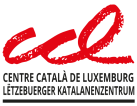All about Luxembourg
The website of the Luxembourg Government provides an overview of the Grand Duchy of Luxembourg, more particularly, Significant aspects of political life, economic and social luxemburgesa.
Luxembourg in a nutshell
From this site you can find the essence of the history of Luxembourg and always on some important details (weather, geography, etc.)
Visit the website (in English)
The linguistic situation in Luxembourg
The linguistic situation in Luxembourg is characterized by recognition and widespread practice of the three official languages: Luxembourgish, French and German. Multilingualism in Luxembourg has its origin in coexistence since the beginning of the country, two ethnic groups, one Latin, the other Germanic. Since always, But, French has enjoyed greater prestige. Neither Spanish, or Austrians, or French, at times that occupied Luxembourg, they call into question the privileged use of French as an official language and administrative. The German was used as a written language in the political sphere in order to make the law understandable for everyone. Elementary School, teaching was limited to German, while French only studied secondary education. Cal, But, do not forget that most people use and use in daily life Luxembourgish (“Luxembourgish”), Mosel-Franconian dialect, in a position subordinate to date. The teaching of Luxembourg was not recognized until 1912.
The separation of the Walloon region 1839, After the creation of Belgium, not much change language use. Until 1984, the official use of languages was based on the Ducal Decree of 1830, 1832 and 1834, enshrining the free choice between German and French. Yet the administration has always preferred the use of French to German.
The current linguistic situation in Luxembourg is the logical consequence of this historical past. With the constitutional review 1948, the legislator has, for the first time, the ability to regulate by law the language regime. The first law is voted 24 February 1984 without changing anything essential with regard to traditional bilingualism. The big change in this law is the consecration, for the first time, Luxembourg identity (which can be considered to exist as such explicitly after the Second World War) declaring that the national language is Luxembourgish (concept own language similar to that used by the Statute of Autonomy of Catalonia). The law 1984 recognizes the three languages of Luxembourg, Luxembourgish, French and German as official languages. This parity is slightly corrected by Article 3 of the Act which states that citizens should make use of the three languages “the extent possible”. French remains the language of legislation (article 2).
He settlement the Grand Ducal 30 July 1999 reformed the system of official spelling of the Luxembourg language to overcome the traditional lack of knowledge written by the people and foster a more normalized. Although the traditional bilingualism is a trilingualism right now, hardly anyone in Luxembourg rejected the proposed French and German. Its importance is not only political and economic but part of a national identity formed from the coexistence of historical Germanic and Latin cultures. With the trilingual regime, Luxembourg remains a symbol original encounter between Latin culture and Germanic culture as, today, cultures from around the world.
Luxembourgish is taught in elementary school after the French and German. The remaining German, But, as the lingua franca of the education system. The French introduced from primary.
In higher education, Luxembourg bilingualism allows students to continue studies at universities throughout the French-speaking world, germanòfon o anglòfon. Learning English becomes, a school strongly oriented language learning, less effort for students.
Download document About Language
see also The Luxembourguish language – Wikipedia.
Luxembourg in numbers and websites
- The composition of the population by nationality luxemburgesa can be found at Directory physical persones Ministry of Interior
- Summary 2011 «Luxembourg in figures»
- The essential economic information can be found on the website Luxembourg Chamber of Commerce Luxembourg
- For air travel to Luxembourg from Barcelona, Palma de Mallorca, Ibiza or Menorca flight timetables Company LUXAIR
- For air travel to Luxembourg from Barcelona, See the schedule of the company VUELING
- Or if you want to travel from Alicante, Ibiza, Girona, Lleida, Palma de Mallorca, Reus and Valencia to Hahn (an hour and a half from Luxembourg) Charleroi (in two hours) See the schedule of the company Ryanair
- If you are traveling with Ryanair, if you have a car no one will come to look, You have the bus company Flibco
- If your preference is to travel by train then see the website Société Nationale des Chemins de Fer Luxembourgeois
- To travel by bus, You can count on the company Eurolines (departures from Barcelona Tuesday and Thursday; Of Luxemburg, Monday and Friday)
- Tourist attractions and accommodation possibilities in the city of Luxembourg can be found on the website of Luxembourg City Tourist Office
- Get the Grand Duchy of Luxembourg and all the attractions that hides a territory fortunately still far enough away from mass tourism you can do so by visiting the website of’National Tourist Office
- To find information about all kinds of Luxembourg is best to use two web browsers that will open all doors virtual Luxembourg; please LUXWEB O RTL
- If you are searching for accommodation possibilities in Youth Hostels consult the website http://www.youthhostels.lu
- Many details about the cultural activities in Luxembourg and its environs are the web’Agendalux
- Finding a job is never easy, but if you meet the language requirements and professional labor market demands Luxembourg maybe you can find something interesting in Monster O LuxBazar
- Close to Luxembourg, after the German border lies the magnificent Roman city Trier (Trier)
- And just after the French find fonters-du-razès City Metz, with a wide range of historical and cultural sights.

